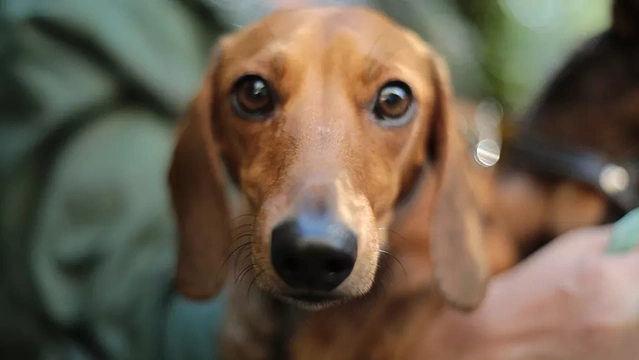
Vomiting and diarrhoea in dogs
Vomiting and or diarrhoea is one of the most common reasons for a dog owner to seek veterinary advice. Dogs have a habit of eating all sorts of things that they shouldn’t, which can lead to a stomach upset. Whether the symptoms self-resolve or whether your dog needs to see a veterinarian will depend on how he or she is in themselves and what the vomit or diarrhoea looks like.
Signs of vomiting and diarrhoea
- Nausea before the event: drooling, lip licking, excessive swallowing
- Vomit: note the colour, volume, frequency, and when the last meal was
- Diarrhoea: note the colour, consistency and look for signs of blood.
Causes of vomiting and diarrhoea in dogs
Vomiting and diarrhoea occurs when the stomach and or intestines become irritated or inflamed. Common causes for this include some viruses (similar to human gastroenteritis) or when a dog eats something inappropriate (similar to human food poisoning). Other causes include swallowing an object that causes intestinal obstruction, sudden dietary changes, intestinal parasites, poisoning, parvovirus infection, pancreatitis, side effects of medication, or any other inflammatory gastrointestinal disease (similar to human IBD). Some dogs may become inappetent or lose weight when they are stressed.
Try to prevent your dog getting vomiting and diarrhoea by avoiding very salty, spicy or fatty foods. Introduce dietary changes slowly, over around seven days, to allow the intestinal bacteria to adjust. If you know that your dog is going to experience a stressful event, or if a course of antibiotics has been prescribed, then you can feed a probiotic supplement, which can help to reduce the risk of stomach upset. It is useful to have some chicken fillet or white fish in the freezer at home together with dog-specific probiotics and electrolyte powders that can be used for future episodes.
What you can do yourself
If your dog is bright and happy, and there is no blood in the diarrhoea or vomit, then you can often start by providing symptomatic treatment at home:
- Do not starve your dog: historically, dogs have been treated by withholding food for a few hours before re-feeding. However, we now know that the gut needs to contain food to start the healing and recovery process
- Very small dogs and puppies: starving is not appropriate because they risk getting dangerously low blood sugar levels
- Hydration: your dog must have access to clean fresh water at all times
- Highly digestible diet: offer this in small portions little and often. For example, a prescription intestinal diet, such as Purina EN, or boiled rice or potato with cooked white fish, chicken fillet, turkey or egg (feed ⅓ protein to ⅔ carbohydrate)
- Electrolytes and probiotics: use these canine supplements alongside their diet, following the manufacturer’s instructions
- If your dog eats poultry, or is a scavenger, we recommend sending a stool sample for laboratory analysis regularly to see if deworming is needed
- We recommend vaccinating your dog against parvovirus. Puppies should be vaccinated three times, beginning at six weeks of age. Prevention of this disease is very important as this disease can cause fatalities, especially in puppies
A suggested feeding schedule:
- Day 1: give 50% of the recommended daily amount divided into 6-8 portions
- Day 2 and 3: give 75% divided into 4-6 portions
- Day 4 and 5: give 100% divided into 3-4 portions
- Once the dog has been normal for a couple of days you can gradually re-introduce the usual food
Dogs need 50ml of fluid per kg of body weight per day. That is approximately 500ml for a dog weighing 10kg, but this will be considerably more if the dog vomits and or has diarrhoea. The dog may also need a few quieter days in order to fully recover, with short walks on the lead and lower energy activities. It is also important to avoid meeting other dogs until your dog has completely recovered.
Treatment of vomiting and diarrhoea in dogs
Treatment focuses on replacing the fluids that have been lost. In severe cases, dehydration can lead to shock and damage internal organs, such as the kidneys. Blood tests are done to check the levels of red and white blood cells, internal organ function and to check the dog's electrolytes (sodium, potassium, chloride). In addition, it is important to identify what the cause of the vomiting or diarrhoea is. For example, x-rays and/or an ultrasound scan of the abdomen may be needed if the dog has swallowed an object or may have a foreign body. A surgical procedure may be required to resolve the cause.
Symptomatic treatment will be given whilst the clinical signs resolve. A bland diet that requires minimal digestion will be given in small portions, together with anti-nausea medication, antacids, pain relief, and probiotics to replace the normal gut bacteria. Antibiotics are rarely indicated in the treatment of vomiting or diarrhoea, unless there are signs of septicaemia (bacteria in the bloodstream), as they can further disrupt the normal bacterial flora in the gut.
When to see your physical veterinarian
- Blood in the vomit
- Frank or increasing blood in the stools or very dark/black stools
- If your dog is increasingly lethargic, inappetent, anorexic or does not want to drink
- Vomiting continues despite supportive treatment for 3-4 days at home (for young puppies and older dogs you should seek help earlier)
- If your dog cannot retain water or is dehydrated
- If a foreign body may have been swallowed that could obstruct the intestine
- Abdominal pain or a swollen abdomen
- If the dog has recurrent episodes of vomiting and or diarrhoea
Still worried?
Book a video appointment to have a chat with one of our vets.



